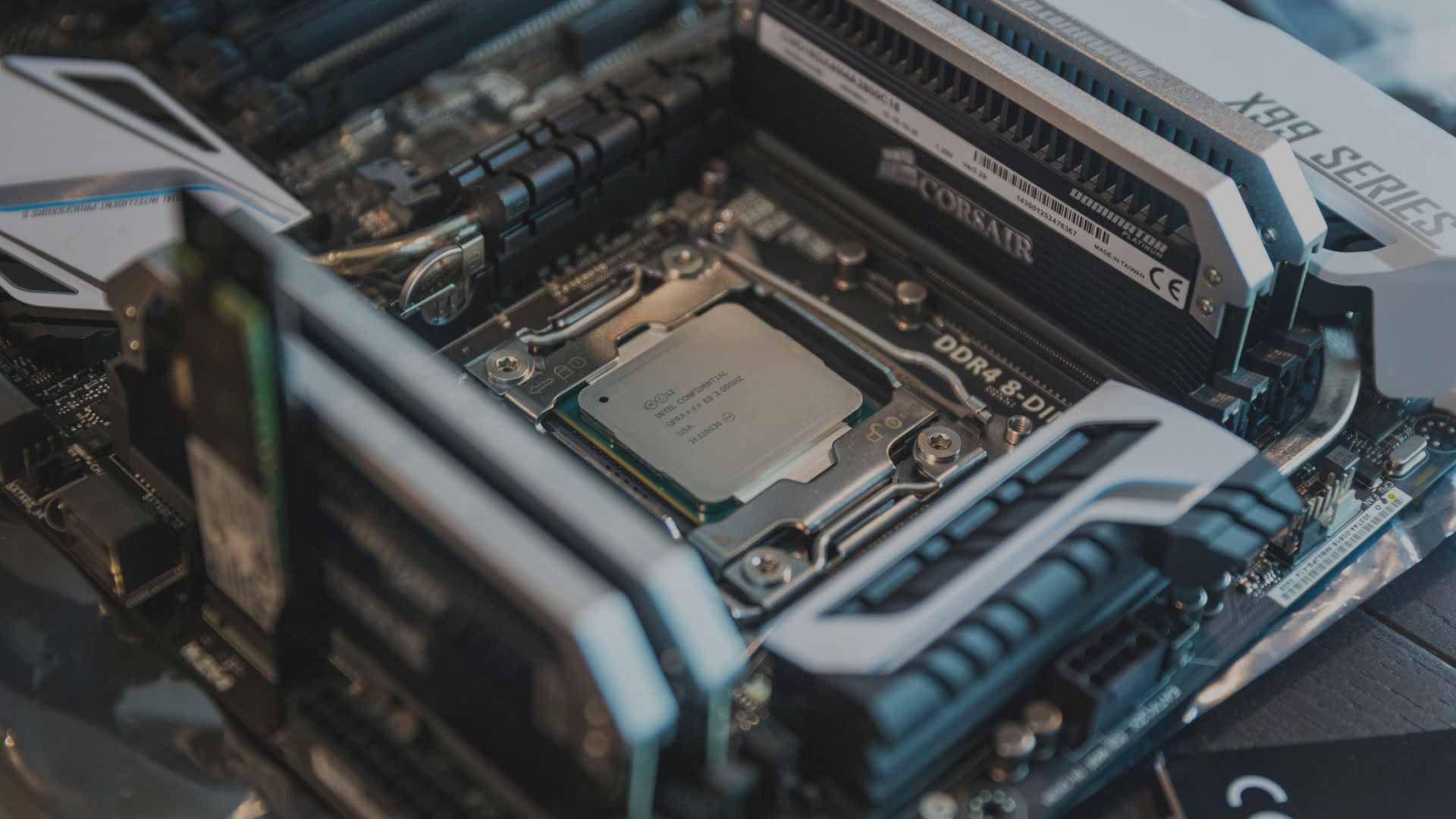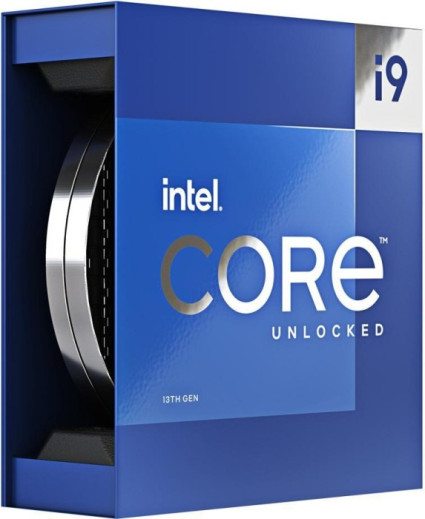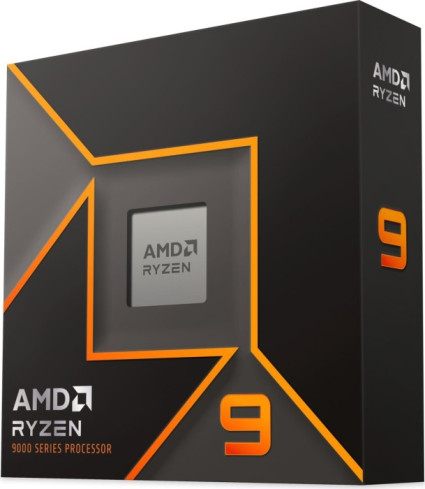
Intel Core i9-13900K vs. AMD Ryzen 9 9950X
In diesem Vergleich von Intel Core i9-13900K versus AMD Ryzen 9 9950X vergleichen wir die technischen Daten der beiden GPUs. Welche Grafikkarte ist schneller? Hier gibt es FPS & Benchmarks in Gaming und Anwendungen. Außerdem Daten zu Verbrauch, Effizienz (FPS pro Watt) und Preis-Leistung (FPS pro Euro).

Allgemeine Informationen
| Günstigster Preis |
|
|
| Serie | Intel Core i-13000 | Ryzen 9000 |
| Chip-Architektur | Raptor Cove (P-Core) + Gracemont (E-Core) | Zen 5 |
| Codename | Raptor Lake-S | Granite Ridge |
| Produktname | Intel Core i9-13900K | AMD Ryzen 9 9950X |
Spezifikationen
Die Anzahl der Rechenkerne, die maximale Taktrate und die Größe des Cache können sich auf die Leistung in Spielen und Anwendungen auswirken. Mit 24 Kernen bietet der Intel Core i9-13900K deutlich mehr Kerne als der AMD Ryzen 9 9950X mit 16 Rechenkernen. Der maximale Takt liegt beim Intel Core i9-13900K mit 5.80 GHz etwas höher als beim AMD Ryzen 9 9950X mit 5.70 GHz. Der Cache ist beim Intel Core i9-13900K mit 32 MB L2-Cache + 36 MB L3-Cache zu 16 MB L2-Cache + 64 MB L3-Cache deutlich kleiner als beim AMD Ryzen 9 9950X.
| Kerne (Gesamt) | 24 | 16 |
| Anzahl P-Cores | 8C | 16C |
| Anzahl E-Cores | 16c | - |
| Basis-Takt | 3.00 GHz | 4.30 GHz |
| Takt P-Cores | 3.00 GHz | 4.30 GHz |
| Takt E-Cores | 2.20 GHz | - |
| Turbo-Takt | 5.80 (Thermal Velocity Boost) GHz | 5.70 GHz |
| Turbo P-Cores | 5.80 (Thermal Velocity Boost) GHz | 5.70 GHz |
| Turbo E-Cores | 5.40 GHz | - |
| Gesamter L2-Cache | 32 MB | 16 MB |
| Gesamter L3-Cache | 36 MB | 64 MB |
| Fertigung | Intel 7 | TSMC 4 nm (CPU), TSMC 6 nm (I/O) |
| Rechenleistung | - | - |
| Leistungsaufnahme (TDP) | 125W (Processor Base Power) 253W (Maximum Turbo Power) |
170W |
Mainboard-Kompatibilität
Während der Intel Core i9-13900K den Intel 1700 Sockel nutzt, ist der AMD Ryzen 9 9950X mit Mainboards für den Sockel AMD AM5 kompatibel. Die genaue Chipsatz-Eignung und die unterstützten PCIe-Lanes können Sie der Tabelle entnehmen.
| Sockel | Intel 1700 | AMD AM5 |
| Chipsatz-Eignung | B660, B760, H610, H610E, H670, H770, Q670, Q670E, R680E, W680, Z690, Z790 | A620, B650, B650E, B840, B850, X670, X670E, X870, X870E (modellabhängig: PRO 600, PRO 665, X600) |
| PCIe-3.0-Lanes | - | - |
| PCIe-4.0-Lanes | 4x | - |
| PCIe-5.0-Lanes | 16x | 28x (verfügbar: 24) |
RAM-Kompatibilität
Während Sie beim Intel Core i9-13900K bis zu 192 GB vom Typ DDR4/DDR5 im Dual Channel verbauen können, unterstützt der AMD Ryzen 9 9950X bis zu 192 GB DDR5 Arbeitsspeicher.
| Speicher-Controller | DDR4/DDR5 | DDR5 |
| Anzahl Speicherkanäle | Dual Channel | Dual Channel |
| max. Speichermenge | 192 GB | 192 GB |
| ECC-Unterstützung | ✓ | ✓ |
Grafik
| iGPU | ✓ | ✓ |
| iGPU-Modell | Intel UHD Graphics 770 | AMD Radeon Graphics |
| iGPU-Takt | 0,30-1,65GHz | 2,20GHz |
| iGPU-Einheiten | 2Xe/32EU/256SP | 2CU/128SP |
| iGPU-Rechenleistung | 0.87 TFLOPS (FP32) | 0.56 TFLOPS (FP32) |
| iGPU-Architektur | Xe-LP / Gen 12.2, Codename "Raptor Lake GT1" | RDNA 2, Codename "Granite Ridge" |
| iGPU-Interface | DP 1.4a (7680x4320@60Hz), eDP 1.4b (5120x3200@120Hz), HDMI 2.1 (4096x2160@60Hz) | DP 2.0, HDMI 2.1 |
| iGPU-Funktionen | 4x Display Support, 2x Codec Engines / Video Decode Boxes, Intel Clear Video HD, Intel Quick Sync Video, AV1 decode, H.265 encode/decode, VP9 encode/decode, HDCP 2.3, DirectX 12, OpenGL 4.5, OpenCL 3.0, Vulkan 1.0 | 4x Display Support, AMD Eyefinity, AMD FreeSync 2, AV1 decode, H.265 encode/decode, VP9 decode, DirectX 12.1, OpenGL 4.5, Vulkan 1.0 |
Sonstiges
| Freier Multiplikator | ✓ | ✓ |
| Stepping | B0, Spec Code: SRMBH | GNR-B0 |
| Heatspreader-Kontaktmittel | Metall/verlötet | - |
| Temparatur max. | 100°C (Tjunction) | 95°C (Tjmax) |
| Fernwartung | ✓ (Intel vPro Essentials, Intel vPro Enterprise) | - |
| Einführung | 2022/Q3 (28.9.2022) | 2024/Q3 |
| Herstellergarantie | 5 Jahre bei Intel® Boxed-Prozessoren durch erweiterte Garantieunterstützung (Info EN) | 3 Jahre bei AMD® Boxed-Prozessoren (Info EN) |
CPU-Funktionen
| AES-NI | ✓ | ✓ |
| AVX | ✓ | ✓ |
| AVX2 | ✓ | ✓ |
| Boot Guard | ✓ | - |
| CET | ✓ | - |
| DL Boost | ✓ | - |
| EIST | ✓ | - |
| GNA 3.0 | ✓ | - |
| Idle States | ✓ | - |
| Instruction Set | ✓ | - |
| ISM | ✓ | - |
| MBEC | ✓ | - |
| Optane Memory Support | - | - |
| OS Guard | ✓ | - |
| Secure Key | ✓ | - |
| Speed Shift | ✓ | - |
| SSE4.1 | ✓ | ✓ |
| SSE4.2 | ✓ | ✓ |
| Thermal Monitoring | ✓ | - |
| VMD | ✓ | - |
| VT-d | ✓ | - |
| VT-x | ✓ | - |
| VT-x EPT | ✓ | - |
| XD Bit | ✓ | - |
Spiele

- AMD Ryzen 9 9950XAVG91.21 %1%88.62 %
- Intel Core i9-13900KAVG100.00 %1%100.00 %

- Intel Core i9-13900KAVG288.6 FPS1%209.7 FPS
- AMD Ryzen 9 9950XAVG287 FPS1%200.7 FPS

- Intel Core i9-13900KAVG679 FPS1%326.4 FPS
- AMD Ryzen 9 9950XAVG708 FPS1%321.6 FPS

- Intel Core i9-13900KAVG161.1 FPS1%113.1 FPS
- AMD Ryzen 9 9950XAVG163.4 FPS1%97.7 FPS

- Intel Core i9-13900KAVG211.8 FPS1%160.2 FPS
- AMD Ryzen 9 9950XAVG221.8 FPS1%182.3 FPS

- Intel Core i9-13900KAVG178.3 FPS1%124.2 FPS
- AMD Ryzen 9 9950XAVG132.9 FPS1%81.9 FPS

- Intel Core i9-13900KAVG276.9 FPS1%171.6 FPS
- AMD Ryzen 9 9950XAVG256.2 FPS1%141.1 FPS

- Intel Core i9-13900KAVG102.9 FPS1%75.8 FPS
- AMD Ryzen 9 9950XAVG79.7 FPS1%63.1 FPS

- Intel Core i9-13900KAVG303 FPS1%171.4 FPS
- AMD Ryzen 9 9950XAVG228.2 FPS1%142.5 FPS

- AMD Ryzen 9 9950XAVG0.46 FPSIntel Core i9-13900KAVG0.55 FPS

- AMD Ryzen 9 9950XAVG2.62 FPSIntel Core i9-13900KAVG2.03 FPS
Produktivität
Produktivität

- AMD Ryzen 9 9950XAVG115.43 %Intel Core i9-13900KAVG100.00 %

- AMD Ryzen 9 9950XPKT219578 PunkteIntel Core i9-13900KPKT189032 Punkte

- AMD Ryzen 9 9950XPKT1709 PunkteIntel Core i9-13900KPKT1540 Punkte

- AMD Ryzen 9 9950XPKT1218 PunkteIntel Core i9-13900KPKT1040 Punkte

- AMD Ryzen 9 9950XSEK122 SekundenIntel Core i9-13900KSEK161 Sekunden

- AMD Ryzen 9 9950XPKT2315 PunkteIntel Core i9-13900KPKT1970 Punkte

- AMD Ryzen 9 9950XPKT3449 PunkteIntel Core i9-13900KPKT3350 Punkte

- AMD Ryzen 9 9950XPKT21281 PunkteIntel Core i9-13900KPKT20234 Punkte

- AMD Ryzen 9 9950XSEK37 SekundenIntel Core i9-13900KSEK49 Sekunden




